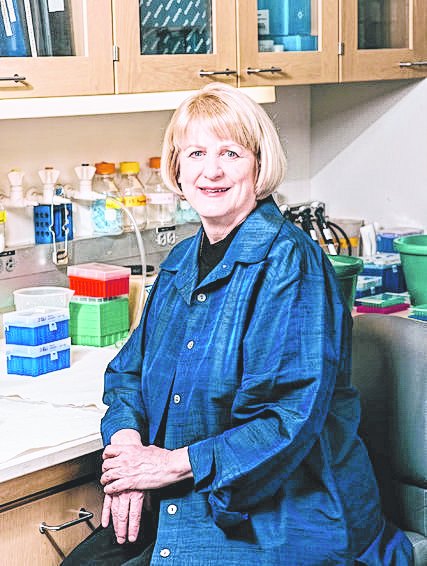
April 21: A Silicon Valley start-up with some big-name backers is threatening to upend genetic screening for breast and ovarian cancer by offering a test on a sample of saliva that is so inexpensive that most women could get it.
At the same time, the nation's two largest clinical laboratories, Quest Diagnostics and LabCorp, normally bitter rivals, are joining with French researchers to pool their data to better interpret mutations in the two main breast cancer risk genes, known as BRCA1 and BRCA2. Other companies and laboratories are being invited to join the effort, called BRCA Share.
The announcements, although coincidental in their timing, speak to the surge in competition in genetic risk screening for cancer since 2013, when the Supreme Court invalidated the gene patents that gave Myriad Genetics a monopoly on BRCA testing.
The field has also been propelled by the actress and filmmaker Angelina Jolie, who has a BRCA1 mutation and has written about her own decision to have her breasts, ovaries and fallopian tubes removed to sharply reduce her risk of developing cancer.
But the issue of who should be tested remains controversial. The effort of the start-up, Color Genomics, to "democratise access to genetic testing", in the words of the chief executive, Elad Gil, is generating concern among some experts.
The company plans to charge $249 for an analysis of BRCA1 and BRCA2, plus 17 other cancer-risk genes. That is one tenth the price of many tests now on the market.
Testing of the BRCA genes has generally been limited by medical guidelines to women who already have cancer or those with a family history of breast or ovarian cancers. Insurers generally have not paid for BRCA tests for other women, and some insurers are not paying at all for a newer type of screening known as a panel test that analyses from 10 to 40 genes at once.
Dr Gil of Color said his company's test would be inexpensive enough for women to pay out of pocket, so that neither the woman nor Color will have to deal with insurance companies. He said the company was starting a programme to provide free testing to women who cannot afford its test.
One of the company's unpaid advisers is Mary-Claire King, the University of Washington geneticist whose work led to the discovery of the BRCA1 gene. Dr King last year publicly called for testing to be offered to all American women 30 and older.
She said that half the women with dangerous mutations would not qualify for testing under current guidelines, in part because many inherit the mutation from their fathers rather than their mothers and a family history of breast or ovarian cancer might not be evident.
But other experts say that fewer women in the expanded group would be found to have dangerous mutations, raising the overall cost of testing per cancer case prevented. Moreover, expanded testing could result in many more women being told they have mutations that cannot be classified as either dangerous or benign, leaving women in a state of limbo as to whether they have an increased risk of cancer.
"We have to be careful that we are not just increasing this group of worried-well who have incomplete information," said Dr Kenneth Offit, chief of the clinical genetics service at the Memorial Sloan Kettering Cancer Centre.
Dr Offit said it was contradictory that Color was trying to expand testing to everyone on the same day the two biggest testing companies were joining forces to try to reduce how often they find these so-called variants of uncertain significance.
Color is planning to allow women to order tests through its website. Another Silicon Valley start-up that did that, 23andMe, had its health testing shut down in 2013 by the FDA.
Color executives say that unlike with 23andMe, a doctor will be involved in every order and in the test results. If a consumer orders the test directly from its website, her information will be sent to a doctor hired by the company to evaluate it.
An FDA spokeswoman said that if doctors place orders, testing companies that operate their own laboratories do not need FDA approval to offer their tests.
While the actual sequencing might be done for less than $250, that is only part of the cost, which also involves interpretation and working with patients and doctors, they say. Other companies generally charge at least $1,500 for complete analyses of the BRCA genes or for multigene tests.
NEW YORK TIMES NEWS SERVICE











